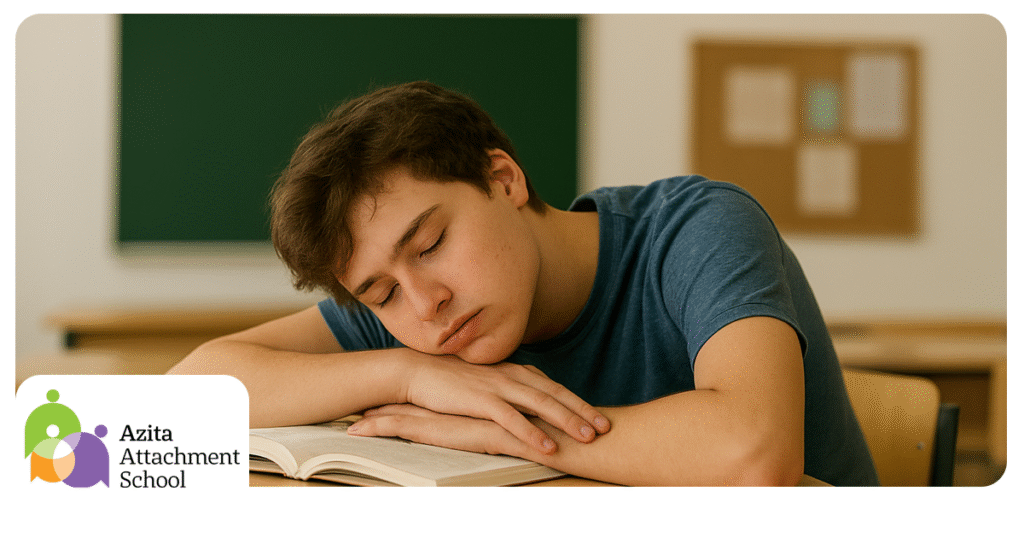Teen insomnia during the school year harms focus, learning, and mental health. Explore research, global statistics, case studies, and step-by-step parental strategies.
Introduction
Adequate sleep is fundamental for brain development and academic success. Yet, many adolescents suffer from insomnia, late-night habits, and chronic fatigue during the school year. Research highlights biological changes in puberty, academic pressure, and excessive screen time as key factors.
Insomnia is not just a physical issue—it directly impacts focus, memory, academic performance, and mental health. Parents play a vital role in shaping healthy routines that promote better sleep quality.
Historical Background and Research
- Carskadon (1999): Demonstrated hormonal changes in puberty shift teens’ circadian rhythms later.
- National Sleep Foundation (2014): Recommends 8–10 hours of nightly sleep for teens.
- APA (2019): Links between insomnia, anxiety, depression, and academic decline in adolescents.
- OECD (2020): Students sleeping less than 7 hours score one GPA lower on average.
Global Data
- USA (CDC, 2021): Over 70% of teens sleep less than recommended.
- Europe (WHO, 2020): 45% of adolescents report sleep issues during school.
- Iran (2019): 61% of high school students experience insufficient sleep.
- Japan: High prevalence of insomnia due to long school days and extracurricular demands.
Case Study
Niloufar, 16 years old:
Niloufar stayed up until 2 a.m. on Instagram and struggled to wake up for school. In class, she yawned constantly and her grades dropped. Her parents initially scolded her, but later, with counseling, they implemented gradual sleep adjustments, nightly internet shutdowns, and calming routines. Her sleep improved, along with her focus.
Why Teens Struggle with Sleep During School Year
- Biological shifts in puberty: Natural tendency toward late sleep.
- Academic pressure: Homework overload and test anxiety.
- Digital dependency: Blue light from screens delays sleep.
- Social anxiety: Peer concerns and performance pressure.
- Lack of exercise: Low physical activity disrupts sleep cycles.
Consequences of Teen Insomnia
- Reduced focus and memory.
- Higher anxiety and depression.
- Lower academic motivation.
- Compromised immune health.
- Increased caffeine or stimulant use.
Step-by-Step Interventions for Parents
- Track sleep patterns: Record sleep and wake times for two weeks.
- Gradual adjustment: Move bedtime 15 minutes earlier each night.
- Digital management: Remove phones from bedroom, shut down Wi-Fi at night.
- Bedtime routine: Reading, calming music, or deep breathing.
- Daily exercise: Promote regular activity.
- Reduce academic overload: Encourage time management over late-night studying.
- Professional intervention: CBT-I therapy for persistent insomnia.
Quick Tips for Parents
Keep consistent bedtimes—even on weekends.
Ensure a dark, cool bedroom environment.
Avoid caffeine after afternoon hours.
Replace scolding with supportive conversations about sleep.
Conclusion
Teen insomnia during the school year is a global challenge with serious consequences for academic success and mental health. Parents, by modeling and enforcing healthy routines, can help adolescents achieve the restorative sleep they need to thrive.

